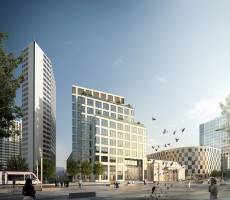April 22, 2015
UK’s health and social systems failing to improve workforce wellbeing 0
 A new report published this week by The Work Foundation, Healthy, Working Economies sets out the challenges facing the next UK government to improve the health and wellbeing of the country’s workforce. The report calls on the government to review how it is using local organisations, such as Health and Wellbeing Boards and Local Enterprise Partnerships to encourage improvements in workforce wellbeing and health. The Work Foundation recommends that a standardised set of measures be included in the Joint Strategic Needs Assessments performed by Health and Wellbeing Boards, including measures of employment outcomes for individuals with health issues. The report also suggests that employer leadership is needed to drive the step-change needed to improve the health of the workforce.
A new report published this week by The Work Foundation, Healthy, Working Economies sets out the challenges facing the next UK government to improve the health and wellbeing of the country’s workforce. The report calls on the government to review how it is using local organisations, such as Health and Wellbeing Boards and Local Enterprise Partnerships to encourage improvements in workforce wellbeing and health. The Work Foundation recommends that a standardised set of measures be included in the Joint Strategic Needs Assessments performed by Health and Wellbeing Boards, including measures of employment outcomes for individuals with health issues. The report also suggests that employer leadership is needed to drive the step-change needed to improve the health of the workforce.

























March 18, 2015
What the colonisation of new domains tells us about how we work
by Charles Marks • Architecture, Cities, Comment, Flexible working
(more…)